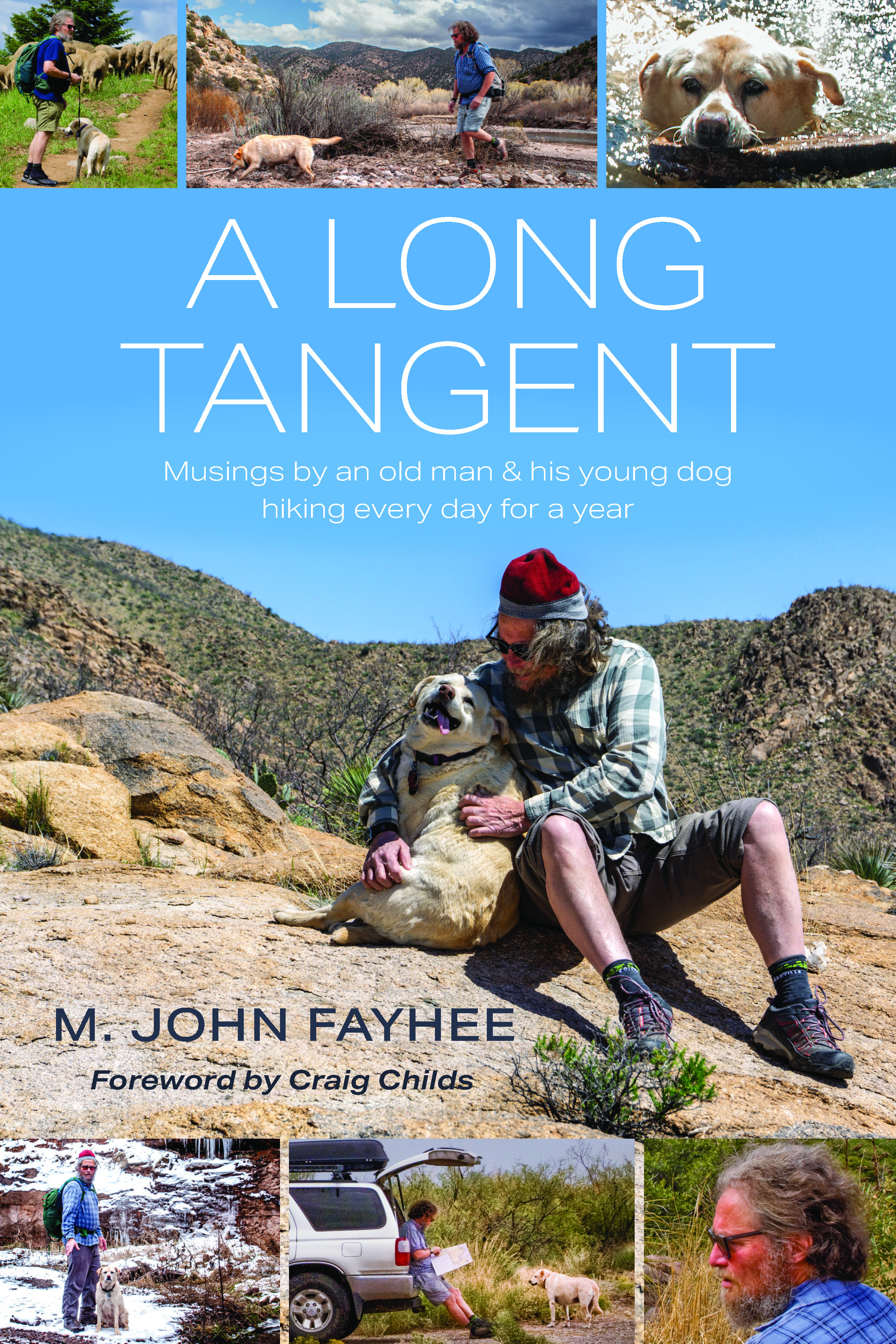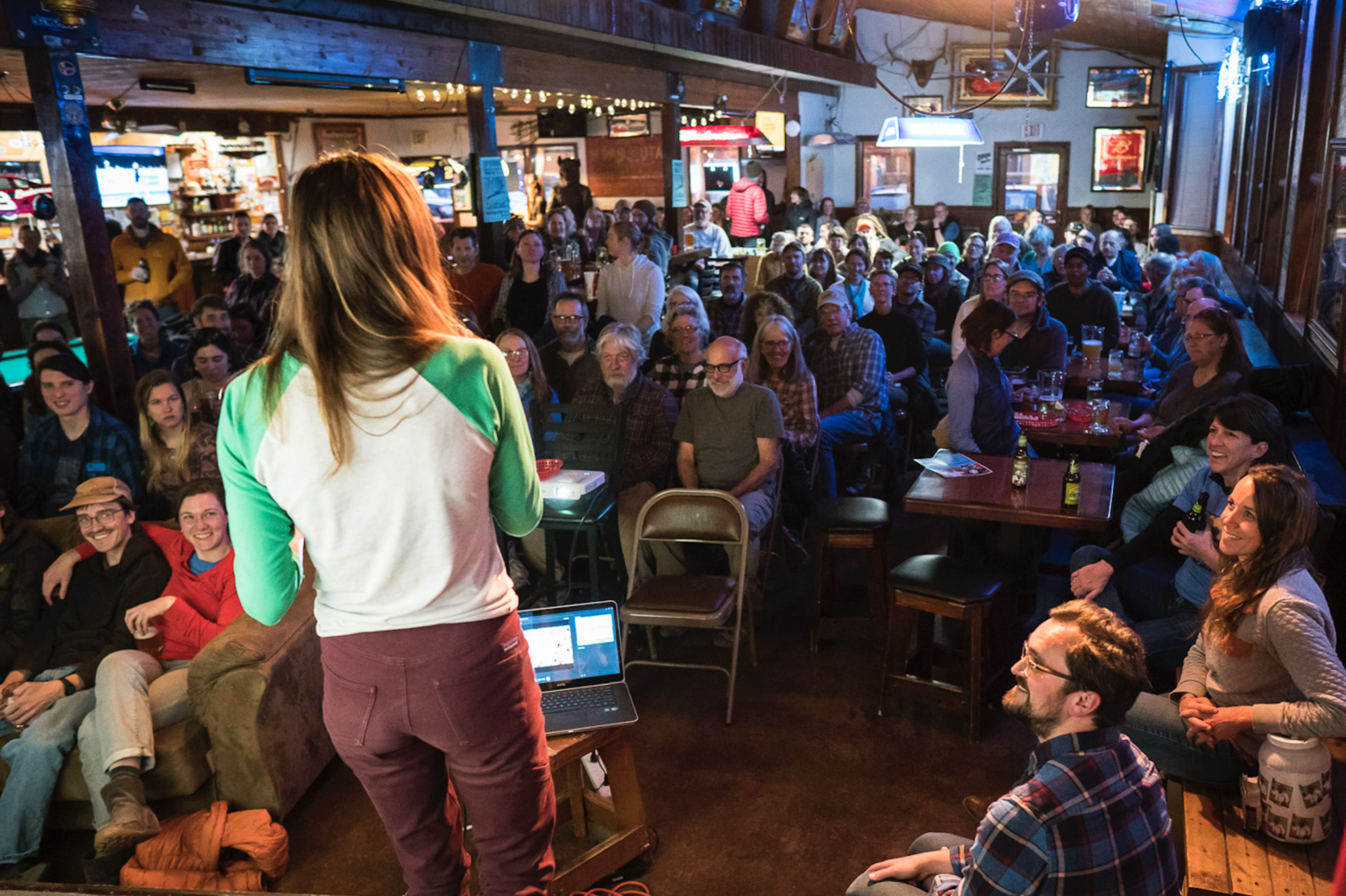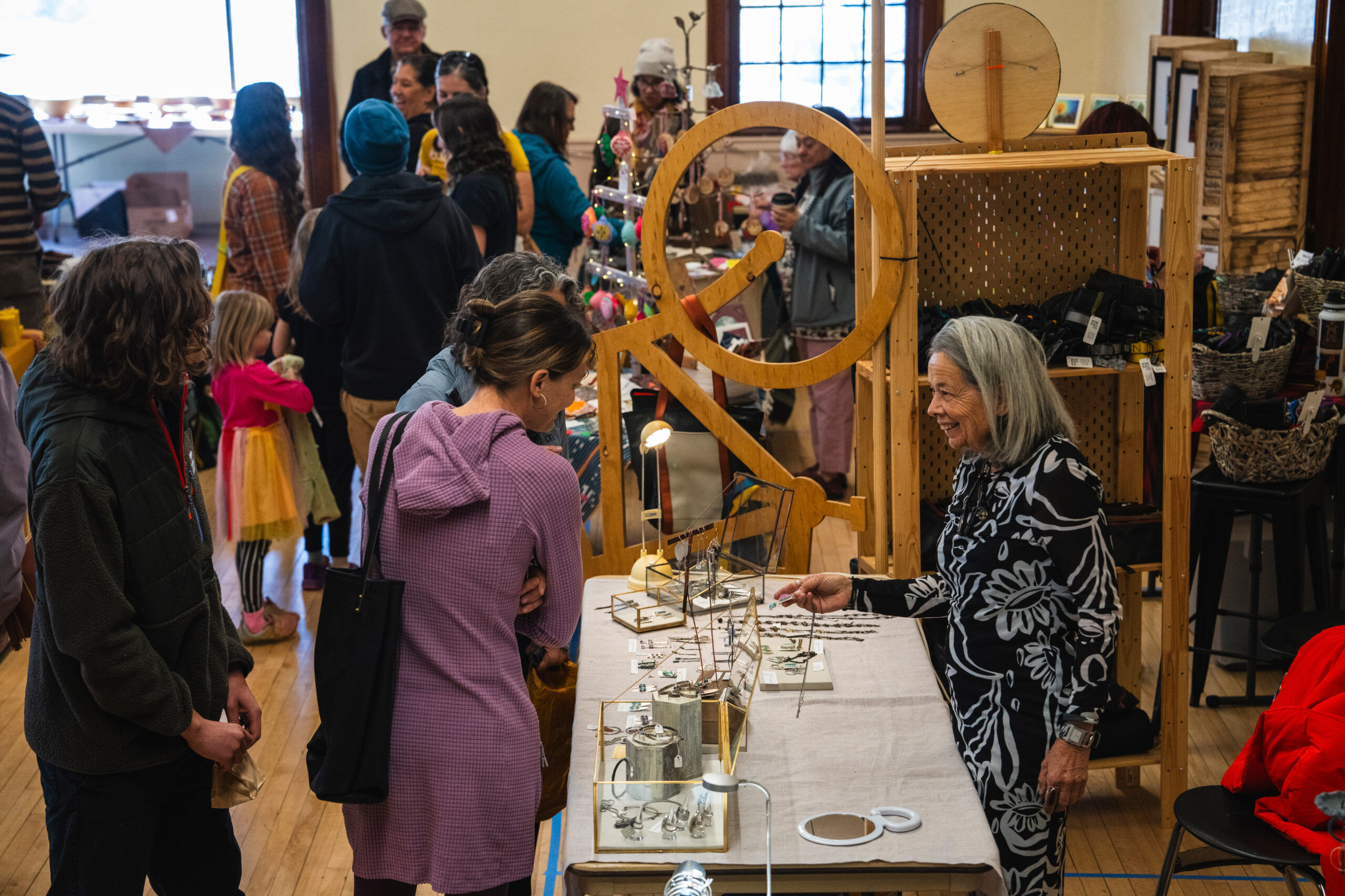Some information may be outdated.
Fayhee will visit Moab on tour with his new book, “A Long Tangent: Musings by an old man and his young dog hiking every day for a year”
A few years ago, John Fayhee was preparing for his 60th birthday. Fayhee is an author and journalist, known for bringing the Mountain Gazette back to life and editing it for twelve years. Sixty felt different than his other birthdays—it felt heavy, he said.
“You start getting letters from the Social Security Administration,” he joked. “Like, it’s getting real now.”
He wanted to do something physically challenging, something that had a beginning and an end. The previous year, he had hiked for 41 straight days in preparation for his 40th high school reunion—he wanted to “drop a few pounds,” he said—and until that point, he had only ever hiked 21 days in a row. So he was at a bar, about to turn 60, thinking of this 41-day achievement, when he thought: what if I do 100 hiking days in a row?
“That’s long enough that I would feel good if I pulled it off, but still attainable,” he said. “And then I had a couple more beers. By the time I got home, I said, to hell with 100 days. I’m gonna go for a whole year.”
The tale of his journey, during which he hiked every day for a year with his dog, Casey, is memorialized in Fayhee’s newest book, “A Long Tangent: Musings by an old man and his young dog hiking every day for a year.” In it, he writes about his hikes—many took place in New Mexico’s Gila National Forest, near his home—and thoughts on topics like mortality, trail names, hangovers, and the American West. The book is a memoir, a collection of essays and poetry: it’s the book Fayhee has wanted to write for his entire life, he said.
He’ll visit Moab on a book tour on Saturday, Sept. 23 at 5:30 p.m. at the Grand County Public Library.
This interview has been edited for length and clarity.
Moab Sun News: Were you always hiking with the idea to write a book? When did the book become a part of this adventure?
Fayhee: I’m a professional writer, so almost everything that I do, I think, can I sell this to a magazine? Oftentimes, that almost corrupts the experience—if you’re doing something with the idea of writing about it, you think about it differently. So I wasn’t thinking about writing a book, I just wanted to do the thing. When I finished, I just patted myself on the back and kind of filed it away as another interesting life experience.
Then couple of years after that, a buddy of mine asked if there was a book in there somewhere. I got to thinking about it, but not too much on it. And then the pandemic hit. And a lot of my writing sources just went away, and they didn’t come back. So I started writing the book, but with this specific idea that I wasn’t going to attempt to get it published. I just wanted to do it.
With this kitchen sink first draft, I put in everything I could think of. It ended up being 200,000 words—so, a little long—and the actual physical manuscript ended up weighing about seven pounds. I just put it in a file cabinet drawer, and I didn’t have the intention whatsoever of submitting it to anybody. But then one of my college buddies said, well, why don’t you send it to Mimbres Press? I had never heard of it—I thought it was some hippie thing that published books about mulching or something. But it’s the university press of my alma mater, Western New Mexico University. So you know, what the hell? Why not pull this manuscript out and dust it off? I knew if I sent in 200,000 words, I’d get laughed out of the room. I trimmed it down to 120,000 words and submitted it, and they went for it.
It ended up being 96,000 words, and it was about 13 months from the time I signed the contract to the time I got my first copies of the book, about a week and a half ago.
MSN: Are the topics in the book—mortality, trail names, the American West—all things you thought about while hiking? Or are these things you thought about while writing the book?
Fayhee: Sort of both and sort of neither. The book is written in ostensibly linear fashion, like, day 17, day 43, that kind of thing. Anything that I thought about while I was doing these hikes that was even remotely related to the endeavor was fair game for inclusion in the manuscript. I’ve written numerous other hiking books where it was basically, I got up in the morning, I hiked somewhere, I saw some beautiful trees. This book has some of that in there too, but it provided me an opportunity to riff on things I’ve thought about for many years.
There are a few overriding themes: one deals with getting old. I used to be able to hike 25 miles a day carrying 50 pounds, and I can’t do that anymore. The aging thing covers a lot of ground, from aches and pains to perspective on the world. And the other theme, as the title would indicate, is the relationship between a man and his dog, and hiking with your dog in the woods.
Casey is no longer with us—she crossed the rainbow bridge about a month before I got this book contract. Writing this book about my dog in the present tense, that was really hard. There are definitely tears on the page.
MSN: You’ve said this is the book you wanted to write for your entire life. Why?
Fayhee: There’s a lot of stuff in the book that I haven’t had the venue to incorporate in a magazine article or another book. I’ve been called an outdoor writer for a long time, and about twice a year, I’ll say something like, I’ll never do outdoor writing again, to hell with this. And then Backpacker Magazine or someone calls up.
There are a few chapters I can think of off the top of my head that have things in there that Backpacker or Outside magazine or the newspapers I’ve worked for would never in a million years allow me to write. I sort of call to task many components of the outdoor recreation industry, and when you’re mainly writing outdoor articles, that kind of stuff is difficult to slide in, because you’re biting the hand that feeds you, right? You have to be careful when 80% of your advertising comes from ski areas and gear shops.
I think the main thing I wanted to get across in those sections of the book is, we need to look in the mirror as outdoor recreationists and ask ourselves the same questions that we demand of the timber industry or the mining industry: we have to ask ourselves, are we having a negative effect on the environment?
So, anyway, this is the book I’ve always wanted to write. Right up until the next book I write.
Appreciate the coverage? Help keep local news alive.
Chip in to support the Moab Sun News.





